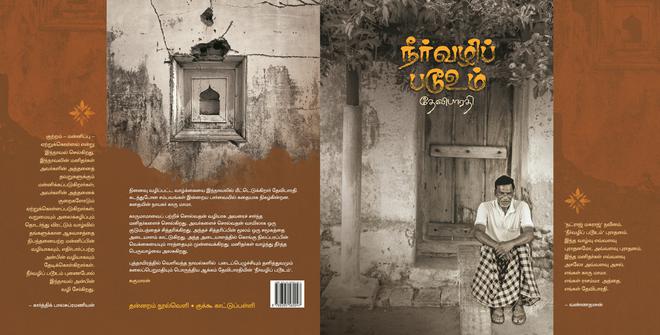Udayampalayam’s nights were meant for stories. When Devibharathi visited the village during his summer holidays, his periamma (aunt) would spread a mat on the floor at bedtime, and tell the children stories. She told a variety of them: of a mosquito and fox that got married and a tree on whose branches sprouted clothes. The children would howl with laughter at the atrocious things periamma made up. But there was one thing she did not tell them: her story.
Neervazhi Padooum is that story — of the people of Udayampalayam in Tiruppur district near Coimbatore, of Kaaru mama, of Devibharathi’s mother and father. The novel recently won the Sahitya Akademi Award 2023 for Tamil.
The 65-year-old author who lives in Pudhu Vengaraiyampalayam in Tiruppur, speaks to us over phone in between a string of interviews. Devibharathi, whose given name is Rajasekaran, has been writing novels, short-stories, poetry, and political essays since the 1980s.
He says that the opinion ‘The most personal is the most creative’ (popularised by filmmaker Bong Joon-Ho’s Oscar speech), is not always true. “A writer’s job is to find out about lives he knows nothing of,” he says, stating examples of his political novel Natraj Maharaj and the deeply-researched Noyyal, which spans 100 years. “Neervazhi Padooum is my only novel that can be termed somewhat personal,” he adds.
The novel’s central characters are his mother, father, uncle, and aunt. “It is the story of the people of Udayampalayam, their lives, their little battles, what they achieve in life, what they do not…more than anything, it holds at its core a sense of virtue that some characters uphold in the end,” says the author, adding that among his favourite characters is Savithri, who is based on his real-life childhood friend.

Writing it took the author back in time to relive the struggles of his ancestors. Pain is a recurring theme in his work. “Pain forms the crux of my writing, and world over, writers continue to be inspired by pain of the human condition. I think pain is the core of existence,” he says.
The Kongu landscape he is part of, inspires Devibharathi. “Udayampalayam, for instance, the village where my grandfather grew up, has a dialect, culture, and tradition unique to the region,” he points out, adding that for any work of literature to be effective, it has to be rooted to people’s culture.
When he first started writing, Devibharathi, who was in Government service, used a sturdy typewriter at work. “I then graduated to the laptop, but I never wrote by hand,” he says, “In the end, what matters is that we write, no matter what the tool.” Devibharathi’s most productive hours as a writer are at the dead of night. “I write from 2am onwards, when the rest of the world sleeps. There is absolute silence at that hour; even the birds do not stir.”
In the 2022 edition of Neervazhi Padooum, brought out by Thannaram Publications, Devibharathi offers a dedication to writer and translator N Kalyana Raman for taking his work to readers in English. He has translated a collection of the author’s short-stories in a compilation titled Farewell, Mahatma published by Harper Collins. “The publisher is set to bring out the English translation of my novel Nizhalin Thanimai as well,” he adds, pointing out that Neervazhi Padooum will be translated into 21 Indian languages, apart from English, by the Sahitya Akademi.
Devibharathi’s understanding of the human psyche can be attributed to the life he leads. “I live in a village, I see the suffering of people up close, especially women. I have seen so many of them cry alone,” he says. Does he foresee hope for humankind? “Like writer Sundara Ramaswamy said, I too believe there will come a time when every person will live in peace. It may not be the case now, but such a time will arrive.”
Neervazhi Padooum can be bought at Thannaram’s stall no 350, 351 at the ongoing Chennai Book Fair.







